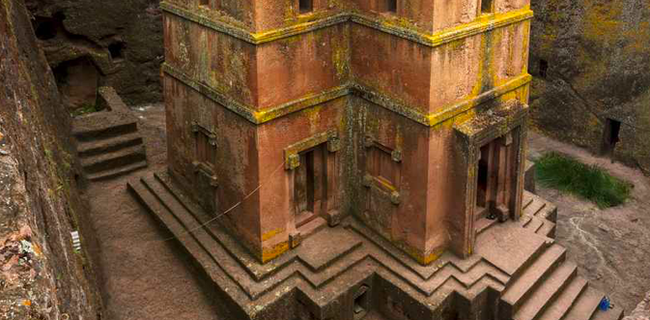Food & Drink: Andy Carling brings us on a voyage of coffee discovery.
If it wasn’t for coffee, I don’t think I would have found the Ark of the Covenant. I’ve regarded a good cup of coffee to be one of life’s greatest pleasures, although I often drink it out of need. Ethiopia is unlike any other African nation. Although it is associated with famine and war, thanks to the media looking for dramatic and simplistic headline news, there is far more to the country.
Bean there, done that One lesser known aspect is coffee. Ethiopia is the oldest coffee exporter in the world, trading with other countries since 1500, but it was in the 19th century when the trade really took off. Muslim merchants transported coffee and other goods in caravans of mules, camels and donkeys. Export was dominated and facilitated by foreigners of more than 140 different nations.
The trade is revitalized today, after decades of conflict decimated fields and the ability to sell the produce. Today it is a major export for the nation, but production methods have changed little since the tenth century.
To find the roots of the bean and its special place in Abyssinian society, we must turn to spiritual matters. The Ethiopian church traces its roots to an official of the Queen, who was baptized by Philip the apostle, the event being recorded in the Acts of the Apostles, one of thirty three references to the nation in the Bible. In the fourth century, the King of the northern Axemite kingdom converted to Christianity, thus establishing the church.
This long history of an ancient form of belief has brought a realm of myths and mysticism to the country, making it a land of kings and saints, where angels tread. The best example of this is the story of Lalibela.
The small and isolated town, 3,000 meters up in the mountains was the birthplace of King Lalibela, and the town now bears his name, which in the Agaw language means, “The bee recognizes his power to rule.”
At his birth, a swarm of bees gathered over his cot, which was taken as a sign that he would become Emperor of Ethiopia. A rival for the throne poisoned him, but this introduced a three day coma, where he had visions of Jerusalem, which had just been captured by Muslim armies, and received a commandment from God to recreate the holy city.
It is how he achieved this that makes Lalibela such an incredible and mysterious place as well as a centre for pilgrimage. He supervised building eleven churches out of the mountains, from layouts and designs given to him in his vision. Each church was carved out of solid rock, some are three stories high and all exterior and interior decoration comes from one piece of stone.
Exactly how the churches were built remains a mystery. In one of the churches there is a carved column that, supposedly, explains the construction, but this has been covered for centuries, keeping the mystery literally, under wraps.
The legends say that angels helped in the building. This may seem far fetched, but the sheer volume and quality of the work involved defies rational explanation. This is a place where superlatives fail. These are no museum pieces, as each of the churches are still places of worship and dotted around the complexes are small nooks and cells, where monks sit and pray.
There is one more treasure in Ethiopia. In a small building next to the Basilica in Axum, there resides, according to the Church, the Ark of the Covenant, brought to the safety of the land, by the first King of Ethiopia, Menelik I, said to be the child of King Solomon and the Queen of Sheba.
In the small courtyard, one monk guards the Ark, never leaving it, never being able to retire. As he dies, he nominates his successor, who cannot refuse the calling. These monks also discovered coffee. They used to chew on the beans to allow them to pray and chant for longer – this confirms my belief that decaffeinated coffee is sinful.
There is a ceremony associated with coffee. A woman will come and prepare the beans in front of you, slowly roasting them, grinding them and, finally serving you three small bowls of rich coffee, sometimes flavoured with ginger.
It’s overwhelming, breathtaking and infinitely subtle, just like Ethiopia. To sit in the evening sun after a day of exploring the mysteries of Lalibela, enjoying the scent and taste of the coffee is an experience that will transform you, putting you where King Lalibela intended, between this world and Heaven.







